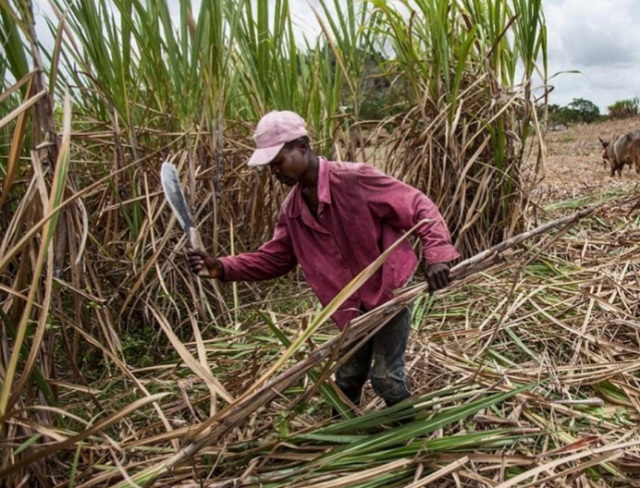
Entebbe, Uganda | THE INDEPENDENT | The business community is teaming up with the governments and the East African Community to promote Contract Farming as a way of boosting the food sector and farmers’ incomes in the region. Whether the idea will be successful and how long it will take, is the question that the East African Business Council (EABC) is dealing with given the pace or unsuccessful this has efforts has been in different countries.
In most of the countries where contract farming has been practiced, it has usually targeted cash crops, as agri-industries seek to maintain stable supplies of raw materials. Under contract farming, the farmer and the buyer enter into an agreement that the latter will supply some inputs and extension services, while the former agrees to sell them to the contract buyer first.
EABC Chief Executive Officer, John Bosco Kaliisa says, for example, that where contract farming has been practiced, especially between farmers and sugar, tea, and coffee companies, it has been on a voluntary basis and is hard to enforce. He says that in most cases the companies take advantage of the farmer’s lack of information and inability to negotiate, to make contracts that favor the buyers.
The EABC, together with the national chambers of commerce from various countries and the government ministries responsible for agriculture and trade, have now launched the process starting with the training of farmers across the region, on the importance of contract farming.
Apart from sugar, brewery, and tea companies, the largest company practicing contract farming in Uganda is Mukwano Industries, which gets a big chunk of its cereals for its vegetable oil, soap, and other products from out-growers. Businge Rwabwogo, the General Manager of Operations at Mukwano Group, says that they have to deal with middlemen who sometimes offer bigger prices than the company.
However, he says, the farmers respect the contracts for royalty purposes even when the middleman offers a little more cash. According to him, the predictability of the earnings by the farmers as well as the predictability of supplies by the company, are the main important advantages of a contract.
Training has started with the trainers of trainers who will go out during the rollout phase to interact with the farmers and encourage them to make formal contracts with buyers. Rwabwogo, who also sits on the board of directors of EABC, says it is now time to move contract farming beyond cash crops to food crops to enhance food security in the region.
The Ministry of Agriculture, Animal Industry and Fisheries says the government is ready to work with the private sector to develop a framework that will ensure that the contracts made are enforceable, spelling out the rights and obligations of both parties.
Dr. Sarah Kagoye, Principal Agribusiness Officer at the Ministry says that the lack of information about contract farming and its benefits, as well as the lack of a legal framework to enforce contracts, are the main reasons it is not a common phenomenon in Uganda. She, however, says this should be the way to go especially because it assures the farmer of the market and the income.
This move is also expected to encourage financial institutions to lend to the agricultural sector because of the enhanced predictability of the revenues for farmers. The sector has always suffered a lack of access to affordable finance with commercial banks admitting that the risks involved make lending to the sector or insuring the agriculture assets unattractive.
It is the main reason that the government decided to invest in it through the Agriculture Insurance Scheme and the Agriculture Credit Facility of the Central Bank. Some countries are more advanced in their contract farming frameworks than others, according to the information available.
In Kenya and Tanzania, like in Uganda, the practice targets cash crops, however, for them, there is a little more government role in their implementation. Justin Marwa, the Agriculture Development Manager at the Tanzania Chamber of Commerce, Industry, and Agriculture, says that one of the shortcomings in his country is that farmers usually take long to be paid for their produce.
This, according to him, frustrates the interest of farmers in contract farming because they need the money to invest in their farms through inputs and other needs.
In South Sudan, there are no formal contracts between farmers and buyers. The closest practice is where a buyer identifies a crop field and make an agreement with the farmer that the yield will be sold to them, while other pay off the farmer even before harvest time.
Caesar Riko, the Monitoring and Evaluation Officer, at the South Sudan Chamber of Commerce Industry and Agriculture, said he hopes this move will help formalize contract farming and the sector as a whole in the country.
****
URN
 The Independent Uganda: You get the Truth we Pay the Price
The Independent Uganda: You get the Truth we Pay the Price


